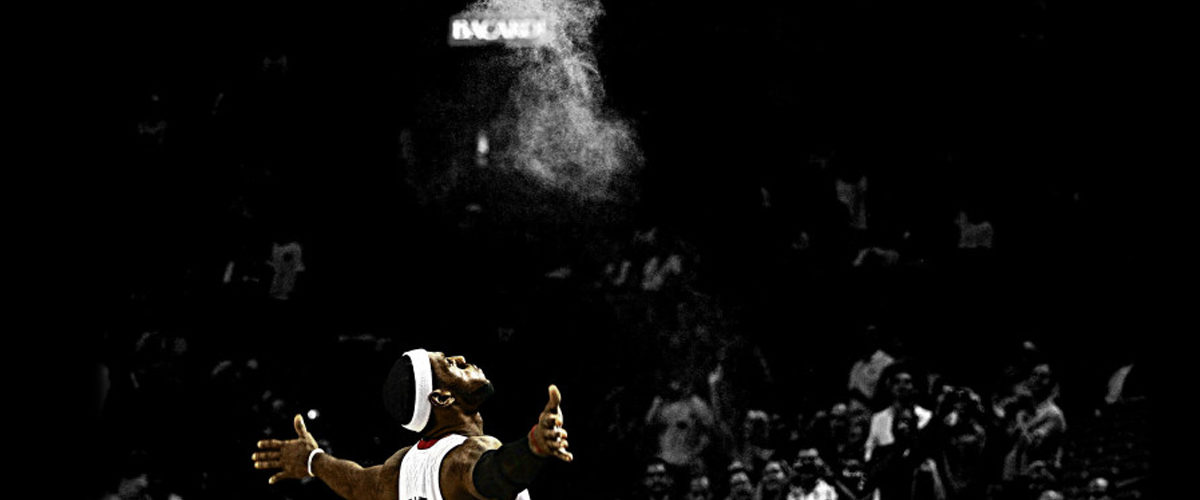
There’s a saying in the sports world that 90 percent of performance is mental.
This isn’t to say that all the intense physical preparation, practice, and training for the big game won’t have a huge effect on an athlete’s performance, but none of that hard work will matter without being mentally prepared for the pressures of high-level competition.Similarly, while it’s obviously vital to practice, obtain the best professional PowerPoint possible and plan all aspects of your presentation carefully, to avoid stress and pressure affecting you at the moment of your presentation. If you’re not mentally prepared then that presentation you worked so hard to perfect might never come to fruition. Look at some of today’s top athletes, like Peyton Manning and Lebron James, prepare themselves physically and mentally before any big game and have this down to an exact science.
Visualize Success
There was a study conducted by Dr. Judd Blaslotto at the University of Chicago in which the subjects were divided into three groups. At the beginning of the study, he tested each group on how many free throws they could make.After this, he had the first group practice free throws every day for an hour, the second group just visualized making free throws successfully for an hour, and the third group didn’t do diddly squat.After 30 days, the groups were retested. The third group didn’t improve. The first group improved by 24 percent and the second—the ones who did nothing but sit around all day thinking about shooting free throws—they improved by 23 percent.Visualizing success is imperative to that success manifesting itself. If you are continually thinking about all the terrible things that could go wrong during a speech, this negative reinforcement may result in a poor performance. However, if you make it a point in your preparation to picture yourself giving a winning presentation, studies show that this will have a discernible positive impact.
Golfing and Grace Under Pressure
When pro female golfer Inbee Park won the U.S. Female Open earlier this summer, she credited her success to two things: her experience and her mental health coach.This reiterates the two-part recipe for success in both sports and presenting to an audience. Preparation, practice, and experience are the foundation for success, but mental toughness is the final ingredient to a winning presentation.Many golfers now use a mental coach to learn how to embrace anxiety before a tournament in order to use it to their advantage. The right amount of anxiety can heighten our awareness and sharpen our senses. The trick is to stay on top of your anxieties, controlling them rather than letting them control you.While obviously this post can’t do what a mental coach can, some important lessons a mental coach often provides are:-Don’t carry mistakes from the previous hole through the rest of the round. When giving a presentation, don’t let past flubs haunt you. View each presentation as a unique opportunity to prove yourself.-Deep breaths can go a long way. It will lower your heart rate and allow you to think clearly and rationally about the situation.-Enjoy yourself. When you’re having fun, you won’t be weighed down by the pressure of the situation. Realize that people just want to enjoy your speech and have fun with it.
Maintain a Positive Outlook
Psychology today analyzed endurance sports such as marathon running and found that a key part of enduring these grueling races is mental outlook. While there isn’t as much crossover between presentation and endurance sports, there is a good lesson to learn about maintaining a positive attitude in the face of unexpected challenges, which is important when things don’t go as planned during our presentations.”The key is how people respond to the stressful conditions,” writes psychologist Jim Taylor, Ph.D. “If you have two athletes of equal ability and one sees, for example, rain and wind as a threat that scares and intimidates them and the other as a challenge that they know they can overcome, the latter athlete will be more successful.”So if there’s a technology malfunction, an unruly crowd , or any of the unforeseeable flubs that tend to arise, remember to view them not as a death sentence to your presentation, but as another challenge to overcome and prove yourself with.